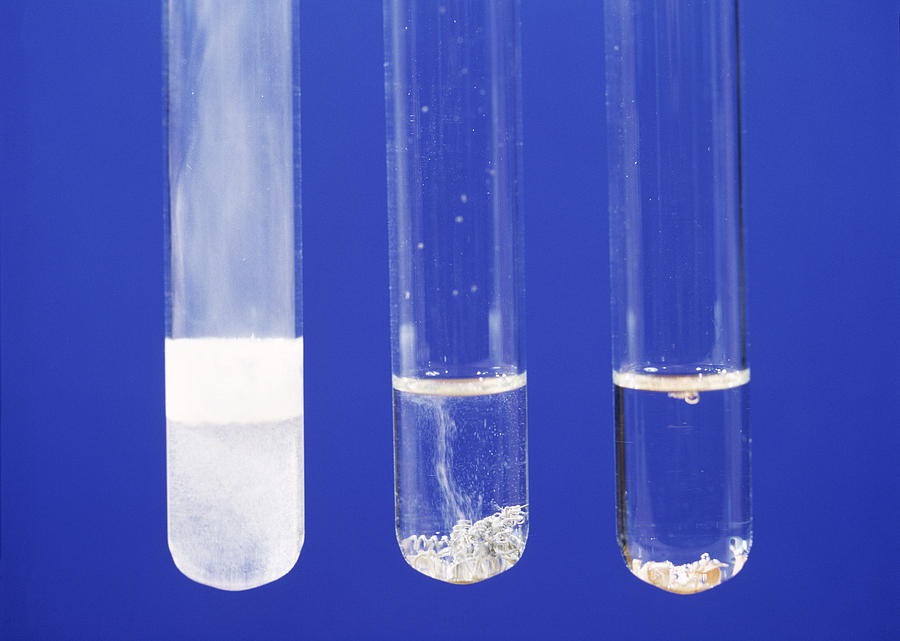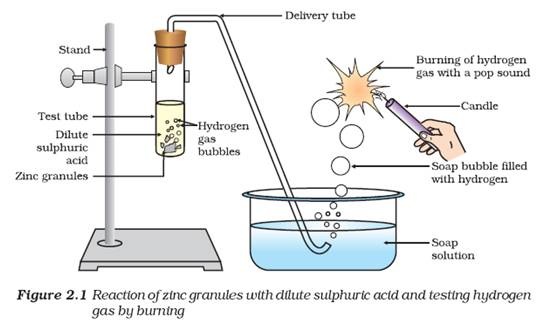Home > Sections > The Atmosphere > Reactions of Acids with Metals
Last Updated: 14th June 2023
ARCHIVED ITEM: this page is no longer updated.

Reactions of Acids with Metals
Keywords
Acids, metals, salt, hydrogen, hydrochloric acid, sulfuric acid, chlorides, sulfates, fizzing, chemical compounds.
Introduction
The chemical reaction between metals and acids can create the by-products of salt and hydrogen. Not all will be visible to see this happen, but some of the metals in the periodic table will show this by fizzing.
Zinc & Acids
When Zinc reacts with acids it creates different chemical compounds. When we add a piece of zinc to hydrochloric acid for example, it will release small bubbles of hydrogen and form zinc chloride. The word equation for this is:
Zinc (Zn) + Hydrochloric Acid (HCl) => Zinc Chloride (ZnCl2 + Hydrogen (H2)
Additionally, if we mix zinc with sulfuric acid, we get zinc sulfate and hydrogen bubbles the same as with hydrochloric acid. The word equation is this:
Zinc (Zn) + Sulfuric acid (H2SO4) => Zinc sulfate (ZnSO4) + Hydrogen (H2)
Here is a YouTube video from Cognito on Electrolysis:
Interesting fact: acids react with metals. When they do, they can produce hydrogen. They can also perform double displacement, which creates a precipatate, or solution.
Chlorides & Sulfates
When we use hydrochloric acid with a substance, and there's a reaction, the end result of these reactions will create a chrloride. So, if you have zinc and add the acid to it, it will create zinc chloride, as explained above. The same goes for other metals - magnesium chloride, potassium chloride, sodium chloride and so on.
Equally, the same thing happens when you mix metals with sulfuric acid. Except this time, they are called sulfates. So, as per the examples above, they would include zinc sulfate, magnesium sulfate, copper sulfate, lead sulfate and iron sulfate.
Too Long; Didn't Read
Quick summary that metals react with acids and create salts and hydrogen. Depending on the type of metal, depends on the speed or rate of reaction, along with the amount of reacting it does. Using sulfuric acid or hydrochloric acid gives different reactions. We either get chlorides or sulfates from the different elements we place into these acids.






